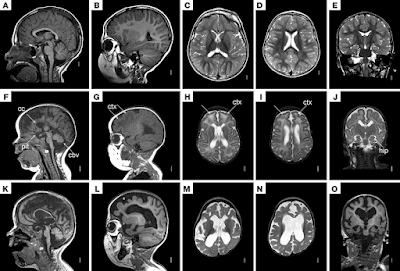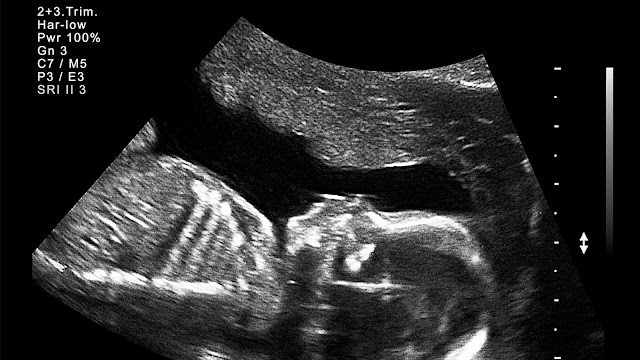In recent years, scientists and health professionals have begun to explore the complex relationship between gut health and mental health, a connection often referred to as the "gut-brain axis." This emerging field of research is revolutionizing our understanding of how the digestive system and the brain communicate, influencing everything from mood and cognition to stress and anxiety levels. In this blog, we’ll delve into the science behind the gut-brain connection, discuss how gut health impacts mental well-being, and offer tips on how to maintain a healthy gut for better mental health.
1. Understanding the Gut-Brain Axis
The gut-brain axis is a bidirectional communication network that links the central nervous system (CNS) with the enteric nervous system (ENS), which governs the function of the gastrointestinal (GI) tract. This complex system of communication involves several pathways, including:
- Neural Pathways: The vagus nerve, the longest cranial nerve in the body, plays a crucial role in transmitting signals between the gut and the brain. It is a major component of the parasympathetic nervous system and facilitates the two-way communication that impacts both gut function and mental states.
- Hormonal Pathways: The gut and brain communicate through various hormones and neuropeptides. For example, the gut produces about 95% of the body's serotonin, a neurotransmitter that significantly influences mood, anxiety, and happiness.
- Immune System Pathways: The gut is home to a significant portion of the body's immune cells. Inflammation in the gut can lead to the release of cytokines, which are immune system molecules that can affect brain function and mood.
- Microbial Pathways: The gut microbiome, which consists of trillions of bacteria and other microorganisms, is a key player in the gut-brain axis. These microbes produce various metabolites, including short-chain fatty acids, that can influence brain function and behavior.
2. The Gut Microbiome and Mental Health
The gut microbiome has garnered significant attention in recent years due to its profound impact on both physical and mental health. The microbiome is a diverse community of bacteria, viruses, fungi, and other microorganisms that reside primarily in the intestines. These microorganisms play a crucial role in digestion, immune function, and the production of essential vitamins and neurotransmitters.
Microbiome Diversity and Mental Health:
- Dysbiosis: An imbalance in the gut microbiome, known as dysbiosis, has been linked to various mental health conditions, including anxiety, depression, and even neurodevelopmental disorders like autism. Dysbiosis can result from factors such as poor diet, stress, antibiotic use, and lack of sleep.
- Probiotics and Prebiotics: Probiotics are live bacteria that can be consumed through certain foods or supplements to support a healthy microbiome. Prebiotics, on the other hand, are dietary fibers that feed beneficial gut bacteria. Studies have shown that probiotics can have a positive impact on mood and cognitive function, potentially reducing symptoms of anxiety and depression.
- Psychobiotics: The term "psychobiotics" refers to probiotics that specifically have a positive impact on mental health. These beneficial bacteria can produce neurotransmitters like serotonin and gamma-aminobutyric acid (GABA), which are critical for regulating mood and anxiety.
Gut-Brain Disorders:
- Irritable Bowel Syndrome (IBS): IBS is a common gut disorder that has a strong connection to mental health. Many individuals with IBS experience anxiety and depression, and the condition is often exacerbated by stress. The gut-brain axis plays a significant role in the development and management of IBS, highlighting the importance of addressing both gut health and mental well-being in treatment plans.
- Leaky Gut Syndrome: This condition occurs when the intestinal barrier becomes permeable, allowing toxins, bacteria, and undigested food particles to enter the bloodstream. Leaky gut has been associated with systemic inflammation, which can affect brain function and contribute to mental health issues such as depression and cognitive decline.
3. The Impact of Diet on Gut and Mental Health
Diet plays a pivotal role in shaping the gut microbiome and, consequently, mental health. The foods we eat can either support a healthy gut microbiome or contribute to dysbiosis and inflammation, which can negatively impact mental well-being.
The Role of Diet in Gut Health:
- Fiber-Rich Foods: A diet high in fiber supports the growth of beneficial gut bacteria. Foods such as fruits, vegetables, whole grains, and legumes are rich in prebiotic fibers that nourish the gut microbiome.
- Fermented Foods: Fermented foods like yogurt, kefir, sauerkraut, and kimchi contain live probiotics that can enhance gut health. Regular consumption of these foods has been linked to improved mood and cognitive function.
- Omega-3 Fatty Acids: Omega-3 fatty acids, found in fatty fish, flaxseeds, and walnuts, have anti-inflammatory properties and can support both gut and brain health. Omega-3s have been shown to reduce symptoms of depression and anxiety by modulating neurotransmitter function.
- Avoiding Processed Foods:Diets high in processed foods, sugar, and unhealthy fats can disrupt the gut microbiome and contribute to inflammation. These dietary patterns have been linked to an increased risk of depression and other mental health disorders.
Nutritional Psychiatry:
Nutritional psychiatry is an emerging field that explores the relationship between diet and mental health. Researchers in this field advocate for dietary interventions as a part of the treatment for mental health disorders. For example, the Mediterranean diet, which is rich in whole grains, fruits, vegetables, lean proteins, and healthy fats, has been shown to reduce the risk of depression and improve overall mental well-being.
4. Stress, Gut Health, and Mental Health
Stress is a significant factor that can negatively impact both gut health and mental health. Chronic stress can lead to changes in gut motility, increase intestinal permeability (leading to leaky gut), and alter the composition of the gut microbiome.
The Stress Response and Gut Health:
- Cortisol: Chronic stress leads to elevated levels of cortisol, the body's primary stress hormone. High cortisol levels can negatively impact gut health by increasing inflammation, reducing the diversity of gut bacteria, and contributing to symptoms of IBS.
- HPA Axis: The hypothalamic-pituitary-adrenal (HPA) axis is the central stress response system in the body. Dysregulation of the HPA axis due to chronic stress can lead to altered gut function, including changes in gut permeability and motility.
Managing Stress for Better Gut and Mental Health:
- Mindfulness and Meditation: Practices like mindfulness and meditation can help reduce stress and improve gut health. Studies have shown that mindfulness-based stress reduction (MBSR) programs can lead to improvements in both mental health and gut function.
- Physical Activity: Regular physical activity is beneficial for both gut health and mental health. Exercise has been shown to increase the diversity of the gut microbiome, reduce inflammation, and promote the production of mood-enhancing neurotransmitters.
- Sleep: Adequate sleep is essential for maintaining a healthy gut and a balanced mood. Poor sleep can disrupt the gut microbiome and lead to increased stress levels, creating a vicious cycle that negatively impacts mental health.
5. Practical Tips for Supporting Gut and Mental Health
Maintaining a healthy gut is a key component of overall well-being, and there are several practical steps you can take to support both your gut and mental health:
- Eat a Balanced Diet: Focus on consuming a diet rich in whole foods, including plenty of fruits, vegetables, whole grains, lean proteins, and healthy fats. Incorporate fermented foods and foods rich in prebiotic fibers to nourish your gut microbiome.
- Stay Hydrated: Adequate hydration is essential for maintaining gut health. Water helps keep the digestive system functioning smoothly and supports the balance of gut bacteria.
- Manage Stress: Incorporate stress management techniques into your daily routine, such as mindfulness, deep breathing exercises, yoga, or meditation. Reducing stress can have a positive impact on both gut health and mental well-being.
- Exercise Regularly: Aim for at least 150 minutes of moderate-intensity exercise per week. Physical activity supports gut health, reduces inflammation, and promotes the release of endorphins, which enhance mood.
- Get Enough Sleep: Prioritize getting 7-9 hours of quality sleep each night. Good sleep hygiene is essential for maintaining a healthy gut and a stable mood.
- Limit Antibiotic Use: While antibiotics are sometimes necessary, overuse can disrupt the gut microbiome and lead to dysbiosis. If you need to take antibiotics, consider taking a probiotic supplement to support gut health during and after the course of treatment.
6. Conclusion: The Power of the Gut-Brain Connection
The relationship between gut health and mental health is a complex and fascinating area of study that underscores the importance of a holistic approach to well-being. By nurturing your gut through a balanced diet, stress management, regular exercise, and adequate sleep, you can positively influence your mental health and overall quality of life.
As research into the gut-brain axis continues to evolve, it is becoming increasingly clear that the state of our gut can have a profound impact on how we think, feel, and behave. By taking proactive steps to support gut health, you can harness the power of this connection to enhance both your physical and mental well-being.

.jpeg)

.jpeg)
.jpeg)




.jpeg)
.jpeg)

0 Comments